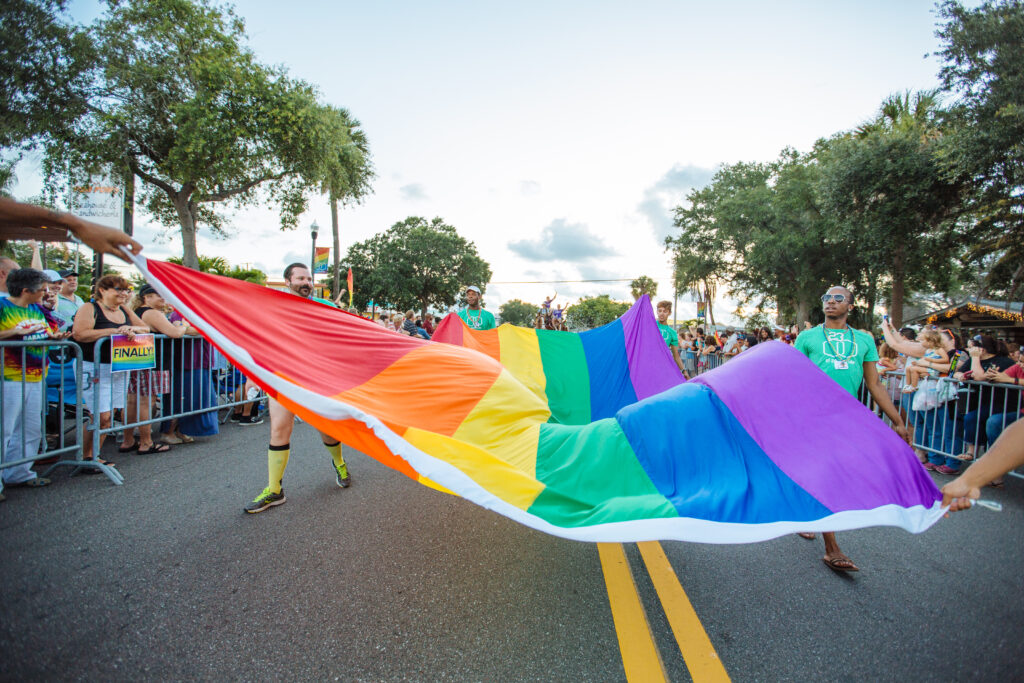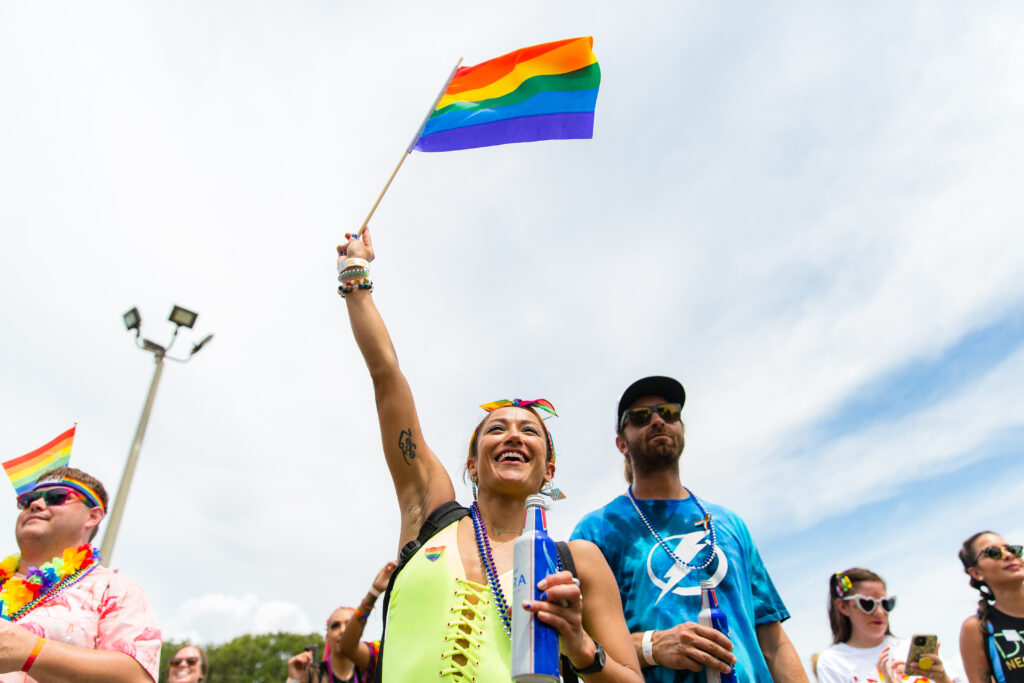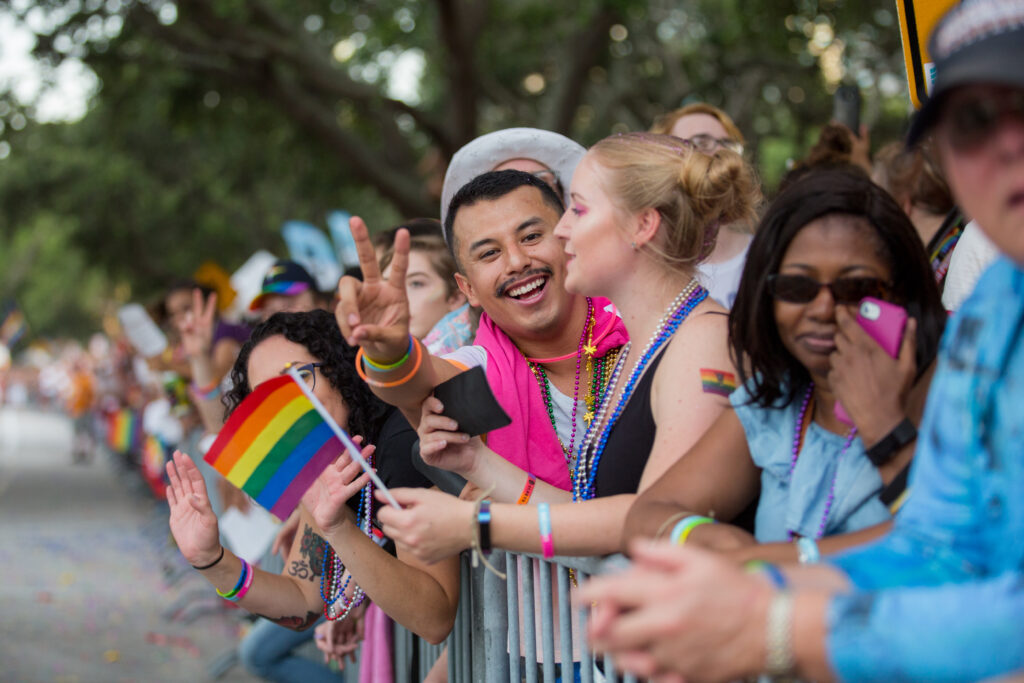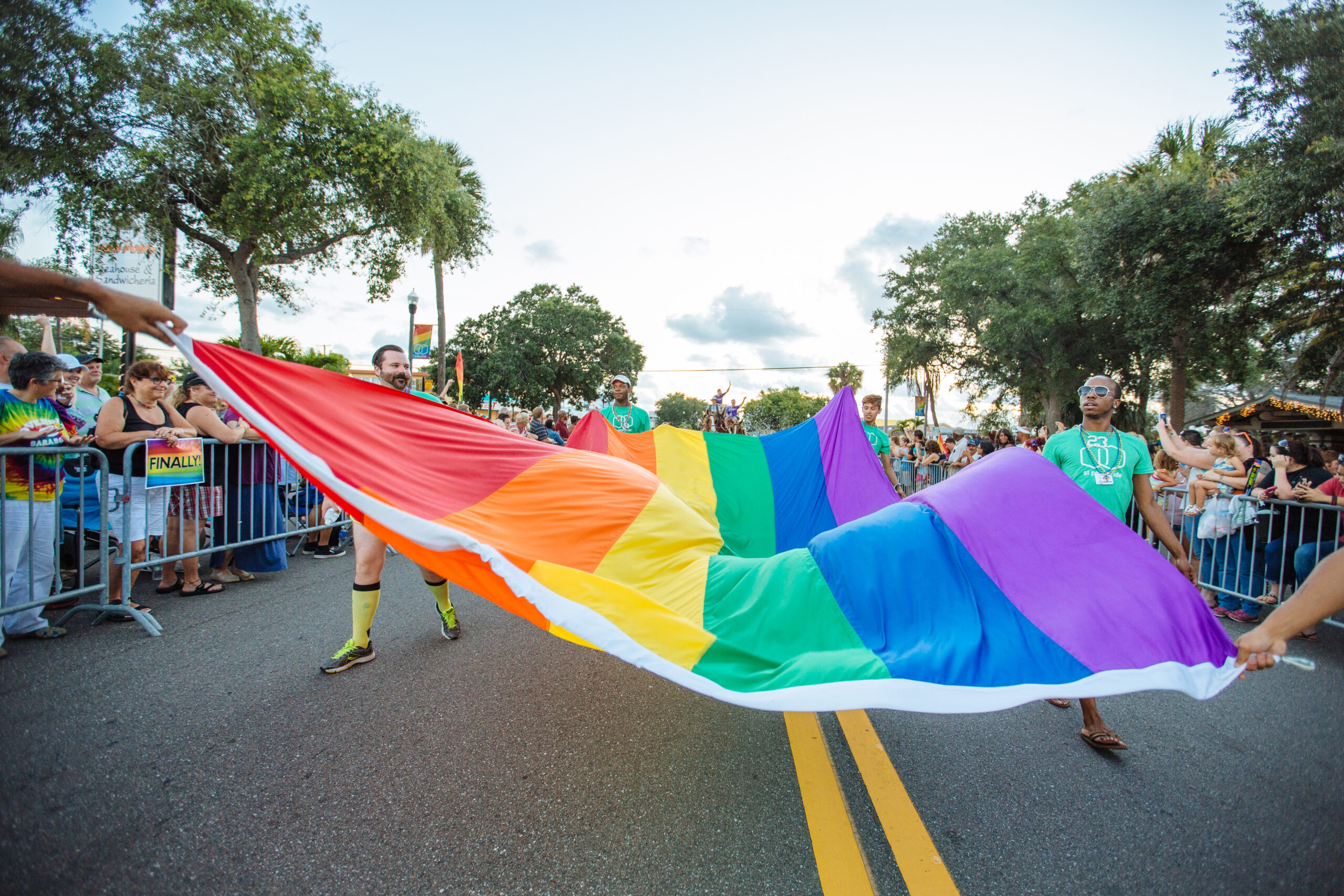
As we enter Pride Month and begin to immerse ourselves into Florida’s largest LGTBQ+ Pride celebration, it’s tempting to think only happy thoughts. St. Pete’s rainbow-draped streets and welcoming shops and restaurants could make it easy to forget the past and ignore the potentially treacherous road ahead to true equality.
Legislating Love
Legislating so-called “abnormal” intimate relationships in Florida began in 1821, when the territorial government banned acts “tending to debauch the morals of society.” In 1868, the state of Florida strengthened its efforts to criminalize and socially condemn private intimacy by making sexual activity between same-sex partners (as well as certain acts between heterosexuals) a felony. Nearly 90 years later, Florida added a “psychopathic offender” law to the books that allowed authorities to periodically “examine” persons convicted under these laws to determine whether they were still a “menace to others.” In the decade that followed, the infamous Johns Committee (i.e. the Florida Legislative Investigation Committee) used these laws to launch what one journalist termed a “war on privacy, human rights, and fair play” that “ruled lives, destroyed careers, [and] poisoned institutions.”
The Johns Committee
Formed in 1956 to investigate the NAACP as a means to stymy desegregation efforts, the Johns Committee turned its attention to homosexuality after the committee became mired in legal battles with the NAACP. Lacking legal or social support, the LGTBQ+ community was vulnerable to the committee’s “casually employed police-state tactics.” Primarily targeting college students, educators, and government employees, untold numbers of persons were publicly harassed (and “outed”), fired, and arrested for crimes ranging from improper dress (men wearing “women’s clothing” and vice versa) to “sexual deviation” before the committee finally was disbanded in 1965.

Legislating Life
The demise of the Johns Committee did not end official harassment nor did it stop attempts to delegitimize the LGTBQ+ community. In fact, growing demands for social acceptance and full legal rights (inspired by the Stonewall Rebellion) energized anti-LGTBQ+ forces. Opponents were no longer satisfied in simply criminalizing private actions; they also sought to cut off access to the rights and norms of everyday life. For example, Florida legislatively banned “homosexual adoption” and same-sex marriage in 1977, by insisting that “the term ‘marriage’ means only a legal union between one man and one woman… .” In 2008, that ban expanded with a constitutional amendment that also barred “civil unions.” LGTBQ+ opponents also funded efforts to stop the courts from ruling in favor of equality based on existing protective statutes, such as the 1964 Civil Rights Act and the 14th Amendment. As a new millennium approached, however, times had begun to change.

A New Millennium
Nationally, these changing times brought mixed results. In 1993, the outright ban on gay and lesbian persons in the military transitioned into the infamous “Don’t Ask, Don’t Tell” policy before being repealed in 2010. Transgender persons waited until 2016 to openly serve, only to have the ban reinstated in 2019 before being reversed again in 2021. In 2003, the U.S. Supreme Court ruled that laws outlawing same-sex sexual acts were unconstitutional. In 2015, after years of efforts, it ruled in favor of marriage equality, which also allowed for married same-sex couples to legally adopt. In June 2020, a Supreme Court decision rendered LGTBQ+ employment discrimination unconstitutional, by including sexual orientation and gender identity as a protected class under the 1964 Civil Rights act. Despite these victories, the LGTBQ+ community still faces significant challenges as non-discrimination laws regarding housing, public accommodations, and services vary widely. For example, Florida lacks statewide protections, but many local municipalities (including St. Pete) provide additional non-discrimination laws.

St. Pete Moves Forward
In the last two decades, St. Petersburg has moved forward with efforts to create a safer place for LGTBQ+ individuals. In 2002, the city added sexual orientation as a protected status to its Human Rights Ordinance (HRO), making it one of a handful of communities in Florida (including Tampa, but NOT Hillsborough County) prohibiting discrimination in housing, public accommodation, and employment. From this decision, the community slowly marched toward broader equality, often at odds with state-level mandates. In 2008, the same year that a constitutional amendment banned same-sex marriage and civil unions, Pinellas County prohibited discrimination based on sexual orientation. In 2012, St. Pete adopted a Domestic Partnership Registry that guaranteed many of the same rights traditionally protected by marriage contracts. And in 2013, gender-identity protections finally were added to the city’s HRO. One year before the Supreme Court made it official, Mayor Rick Kriseman signed the “Mayors for Freedom to Marry Proclamation,” symbolizing support for marriage equality and the idea that “the sun shines on all who come to live, work, and play.”

The Road Ahead is Getting Longer
Despite local protections, a majority of states including Florida do not fully protect LGTBQ+ people from discrimination. In many places, LGTBQ+ persons can be denied service, legally evicted, denied essential medical treatment including gender-affirming care and forced into “conversion therapy.” Legislative efforts to marginalize and deny equal rights and opportunities of people within the LGTBQ+ community, especially transgender individuals, have escalated. Increasingly, we also are seeing a return to the days when people are condemned as a “menace” to society because of their sexuality, gender identity, or the way they choose to dress. When legislatures make it a crime to wear the “dress of the opposite sex,” then we know true equality is still a long way down an increasingly bumpy road.
Resources available on request; I owe thanks to St. Petersburg LGBTQ+ Liaison Jim Nixon for the use of his prior research.



